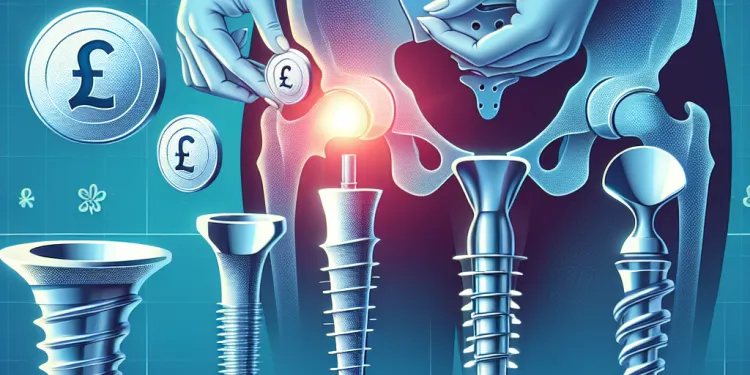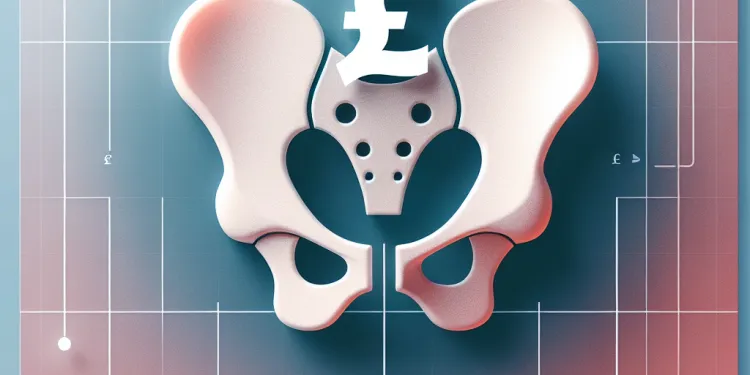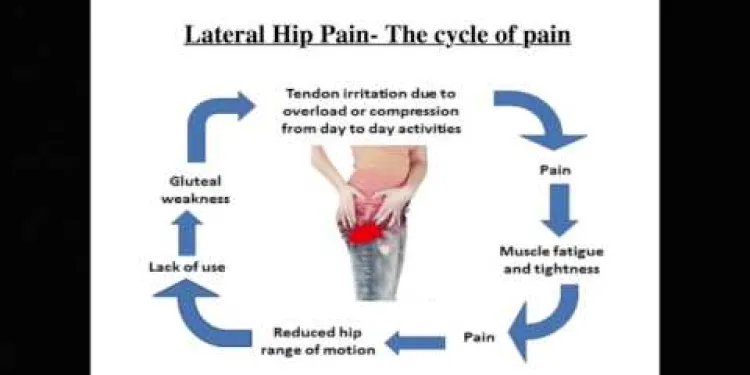
Find Help
More Items From Ergsy search
-

Hip replacement
Relevance: 100%
-

Are there different types of hip implants?
Relevance: 100%
-

Total hip replacement
Relevance: 90%
-

Total Hip Replacement
Relevance: 85%
-

Total hip replacement at Northumbria Healthcare
Relevance: 84%
-

How long do hip replacement implants last?
Relevance: 83%
-

What is a hip replacement?
Relevance: 83%
-

Do I need a Hip Replacement?
Relevance: 81%
-

How much does hip replacement surgery cost in the UK?
Relevance: 80%
-

What are the risks associated with hip replacement surgery?
Relevance: 78%
-

What is minimally invasive hip replacement surgery?
Relevance: 77%
-

Can both hips be replaced at the same time?
Relevance: 71%
-

How do I prepare for hip replacement surgery?
Relevance: 70%
-

What is the recovery time for a hip replacement?
Relevance: 69%
-

Hip replacement - getting into bed
Relevance: 69%
-

How long does a hip replacement surgery take?
Relevance: 67%
-

Will I need physical therapy after a hip replacement?
Relevance: 67%
-

What type of anaesthesia is used during hip replacement surgery?
Relevance: 63%
-

A journey to hip surgery
Relevance: 60%
-

Having a hip replacement - Part Two: Recovery
Relevance: 58%
-

Osteoarthritis of the Hip
Relevance: 56%
-

Same day discharge for NHS Golden Jubilee’s hip replacement patients
Relevance: 56%
-

Your anaesthetic choices for your planned hip or knee replacement surgery at the RUH.
Relevance: 53%
-

Osteoarthritis of the Hip
Relevance: 52%
-

Can I get dental implants on the NHS?
Relevance: 49%
-

Joint School - Hip Exercises
Relevance: 48%
-

Will I be able to return to normal activities after hip replacement?
Relevance: 47%
-

Can I have a mammogram if I have breast implants?
Relevance: 46%
-

Knee replacement
Relevance: 45%
-

Total knee replacement
Relevance: 43%
-

Total Knee Replacement
Relevance: 43%
-

Enhanced Recovery - Hip
Relevance: 40%
-

Exercises to help your lateral hip pain
Relevance: 40%
-

Advice - How to manage your lateral hip pain
Relevance: 39%
-

What can I expect during the first few weeks after hip replacement surgery?
Relevance: 39%
-

Who is a candidate for a hip replacement?
Relevance: 38%
-

What is it like having a Transcutaneous Aortic Valve Implant (TAVI)?
Relevance: 38%
-

Is hormone replacement therapy safe for menopause masking?
Relevance: 32%
-

What is Breast augmentation?
Relevance: 27%
-

Would a wealth tax replace other taxes in the UK?
Relevance: 27%
Introduction
Hip replacement surgery is a common procedure performed to relieve pain and improve function in individuals with severe hip damage. In the UK, this surgery is often recommended for patients suffering from conditions such as osteoarthritis, rheumatoid arthritis, or hip fractures. One of the important considerations for patients undergoing this surgery is the longevity of the hip replacement implant.
Advancements in Hip Replacement
Over the years, advancements in medical technology and materials have significantly extended the lifespan of hip replacement implants. Earlier models lasted around 10 to 15 years, but modern implants can last much longer. The longevity of an implant depends on several factors, including the materials used, the patient’s lifestyle, and the surgical technique employed.
Materials Used in Implants
Today's hip replacement implants are made from various materials, each offering different benefits in terms of durability and functionality. Common materials include metal alloys, ceramics, and polyethylene. Metal-on-metal implants have fallen out of favor due to potential complications, while ceramic-on-ceramic and metal-on-polyethylene combinations are widely used due to their durability. Ceramic components are particularly valued for their hardness and low wear rates, leading to extended implant life.
Expected Longevity
Current data suggest that around 85% of modern hip replacements can last at least 15 to 20 years. Some studies indicate that many implants can function effectively beyond 25 years. This increased longevity is attributed to improved materials and better surgical techniques. However, patients should be aware that individual results can vary based on their activity level and adherence to postoperative care instructions.
Factors Influencing Implant Longevity
Several factors can influence how long a hip replacement implant lasts. Younger, more active patients tend to place greater stress on their implants, potentially reducing their lifespan. Conversely, older patients or those with less demanding physical activities may find their implants last longer. Additionally, maintaining a healthy weight and avoiding high-impact activities can prolong the life of an implant.
Regular Monitoring and Care
Regular follow-up appointments are crucial for monitoring the condition of a hip replacement. Radiographic evaluations and clinical assessments help ensure that any potential issues are detected early. Patients should also report any changes in hip function or pain to their healthcare provider promptly, as early intervention can prevent complications.
Conclusion
Hip replacement implants have seen significant improvements in design and materials, leading to longer-lasting results for many patients in the UK. While individual longevity can vary, modern implants are often expected to function well for 15 to 25 years or more. Patients can optimize the lifespan of their hip replacements through healthy lifestyle choices and regular medical checkups.
Introduction
Hip replacement surgery helps people with bad hip pain feel better. It is often done when someone has hip damage. In the UK, doctors recommend it if someone has osteoarthritis, rheumatoid arthritis, or a broken hip. It is important for people having this surgery to know how long the new hip will last.
Changes in Hip Replacement
There have been many improvements in hip replacement surgery. New technology and materials mean hip replacements last longer. Old hip parts lasted 10 to 15 years. New ones can last much longer. How long they last can depend on the materials, how the person lives, and how the surgery is done.
Materials Used in Hip Replacements
The new hip parts are made from different materials. These materials are strong and work well. They can be made from metal, ceramics, or polyethylene. Metal-on-metal hips are not used much now because they could cause problems. Ceramics and metal-on-polyethylene are popular because they last long. Ceramics are strong and don't wear out easily, so they help the new hip last longer.
How Long They Last
Most new hip replacements can last 15 to 20 years. Some can last over 25 years. This is because of better materials and surgery. But each person is different. How long a hip lasts can depend on how active the person is and how well they follow doctor’s advice.
What Affects Hip Replacement Lifespan
Some things can affect how long the new hip will last. Younger and more active people might wear out their hip parts faster. Older people or those who do not move around too much may find their hip lasts longer. Keeping a healthy weight and not doing heavy exercises can help the hip last longer.
Regular Check-ups and Care
Seeing the doctor regularly is important after a hip replacement. Doctors can look at X-rays and check on the hip to catch problems early. If you notice any pain or changes in how your hip works, tell your doctor right away. This can help stop problems before they get worse.
Conclusion
Hip replacements today are much better than before. They last longer and help many people in the UK. While they usually last 15 to 25 years, the actual time can be different for each person. Eating healthy, staying fit, and regular doctor visits can help the new hip last a long time.
Frequently Asked Questions
Useful Links
This website offers general information and is not a substitute for professional advice.
Always seek guidance from qualified professionals.
If you have any medical concerns or need urgent help, contact a healthcare professional or emergency services immediately.
- Ergsy carfully checks the information in the videos we provide here.
- Videos shown by Youtube after a video has completed, have NOT been reviewed by ERGSY.
- To view, click the arrow in centre of video.
- Most of the videos you find here will have subtitles and/or closed captions available.
- You may need to turn these on, and choose your preferred language.
- Go to the video you'd like to watch.
- If closed captions (CC) are available, settings will be visible on the bottom right of the video player.
- To turn on Captions, click settings .
- To turn off Captions, click settings again.
More Items From Ergsy search
-

Hip replacement
Relevance: 100%
-

Are there different types of hip implants?
Relevance: 100%
-

Total hip replacement
Relevance: 90%
-

Total Hip Replacement
Relevance: 85%
-

Total hip replacement at Northumbria Healthcare
Relevance: 84%
-

How long do hip replacement implants last?
Relevance: 83%
-

What is a hip replacement?
Relevance: 83%
-

Do I need a Hip Replacement?
Relevance: 81%
-

How much does hip replacement surgery cost in the UK?
Relevance: 80%
-

What are the risks associated with hip replacement surgery?
Relevance: 78%
-

What is minimally invasive hip replacement surgery?
Relevance: 77%
-

Can both hips be replaced at the same time?
Relevance: 71%
-

How do I prepare for hip replacement surgery?
Relevance: 70%
-

What is the recovery time for a hip replacement?
Relevance: 69%
-

Hip replacement - getting into bed
Relevance: 69%
-

How long does a hip replacement surgery take?
Relevance: 67%
-

Will I need physical therapy after a hip replacement?
Relevance: 67%
-

What type of anaesthesia is used during hip replacement surgery?
Relevance: 63%
-

A journey to hip surgery
Relevance: 60%
-

Having a hip replacement - Part Two: Recovery
Relevance: 58%
-

Osteoarthritis of the Hip
Relevance: 56%
-

Same day discharge for NHS Golden Jubilee’s hip replacement patients
Relevance: 56%
-

Your anaesthetic choices for your planned hip or knee replacement surgery at the RUH.
Relevance: 53%
-

Osteoarthritis of the Hip
Relevance: 52%
-

Can I get dental implants on the NHS?
Relevance: 49%
-

Joint School - Hip Exercises
Relevance: 48%
-

Will I be able to return to normal activities after hip replacement?
Relevance: 47%
-

Can I have a mammogram if I have breast implants?
Relevance: 46%
-

Knee replacement
Relevance: 45%
-

Total knee replacement
Relevance: 43%
-

Total Knee Replacement
Relevance: 43%
-

Enhanced Recovery - Hip
Relevance: 40%
-

Exercises to help your lateral hip pain
Relevance: 40%
-

Advice - How to manage your lateral hip pain
Relevance: 39%
-

What can I expect during the first few weeks after hip replacement surgery?
Relevance: 39%
-

Who is a candidate for a hip replacement?
Relevance: 38%
-

What is it like having a Transcutaneous Aortic Valve Implant (TAVI)?
Relevance: 38%
-

Is hormone replacement therapy safe for menopause masking?
Relevance: 32%
-

What is Breast augmentation?
Relevance: 27%
-

Would a wealth tax replace other taxes in the UK?
Relevance: 27%


